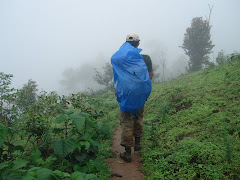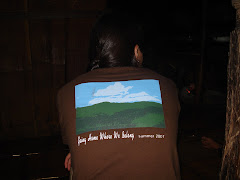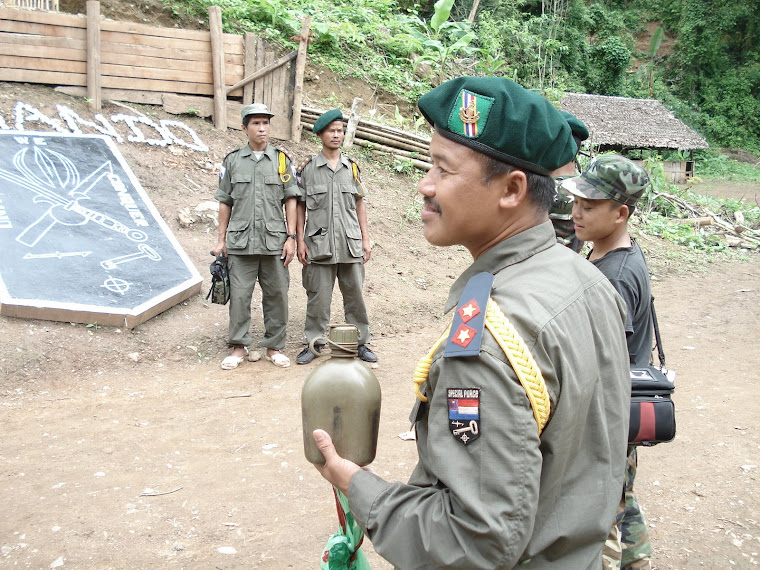The Going Home Memoir: a few words into a deep heart
(September 6 – October 3, 2010)
From time to time I go through an experience –a person, a process, a provocation-- that is memorable and transcendent. This year, when I returned to my home in Karen state, there were a few such experiences that I carried with me. And, I share them here.
I
An Exchange between Saw Pler Gay and His Daughter
Saw Pler Gay, a young father returned from working all day in the field and retired to his terrace to smoke a cigar. From there, he could see his daughter, a second-grader, doing her homework diligently inside the house. Suddenly, she stopped working on her lesson and turned to her father, asking:
“Daddy, when my friends go home and do their homework, their parents help them. How come you and Mummy never help me?”
Her voice was curious, not accusatory. But she wished her parents spent their evenings helping her with her schoolwork, and her father felt her sense of loss. So, he looked at his daughter and said these words:
“My dear daughter, your mother and I do not even know how to read. How could we possibly help you?”
His response possessed a mixture of love, apologies, and shame, speaking volumes with just a few words. She returned to her workbooks, and he returned to his cigar.
This is a family of people who were born in the war zone of Karen State. They were deprived of the luxury of education; their foremost thought has been to survive the war—the battles waged on the front lines, as well as those waged in their day-to-day lives: the fight for food, water, shelter, and health.
And yet, despite the differences, what strikes me is the universality of some of the problems faced by Karen children in Karen state and abroad. I spent the summer collaborating on a Burmese Community Center for Education in Indianapolis. The absence of parents from the education process of our children persists here too. We were constantly faced with the problem of lack of parental involvement – the issue is not one of parental indifference, but incapability. One of our organizers reported about the tour she led which was sad but a brutal reality:
“It was a very excited trip for the parents and for the school. Some of the parents arrived on time at the school. Actually, they arrived early. The first thing that they did was introduce themselves to the school principal and to ENL teachers. Then the ENL teacher introduced themselves. Parents and teachers talked for a while. Then ENL teachers showed them their kids’ class and introduce them to the class teachers. Everyone looked happy and excited. That was a very wonderful trip. Oh! Actually, while parents and teachers were talking and asking questions, one of our parents cried because she felt little for herself. She said, ‘I could not be able to help my kid with the homework because I don't understand the language.’”
Although we may be frustrated by the lack of involvement at first blush, incidents like these shed light on the real story: the anguish of parents, biologically charged to educate their children, who lack the skills to carry out that charge to the fullest. And despite the distance of Saw Pler Gay and the native Karen here in the United States, Karen parents are more or less in the same situation.
We may not be able to help Saw Pler Gay, or any of the millions of parents in Burma’s war zones who cannot help their children with their studies. But, we might be able to help the parents in Indianapolis. We have to remain innovative and daring in our approaches to creating programs. After all, here in the United States, it has become a national campaign to engage parents more insistently and to better our children’s potential in their educational achievement.
May Oo
---














No comments:
Post a Comment